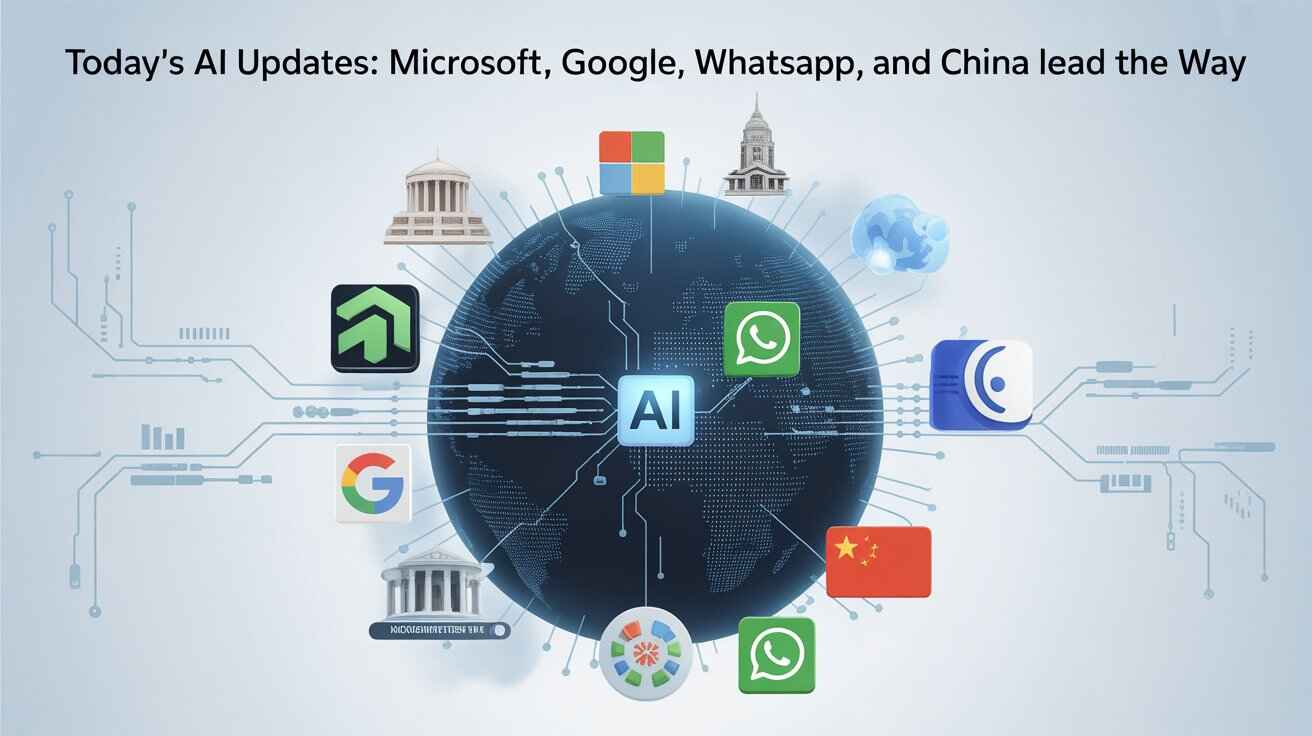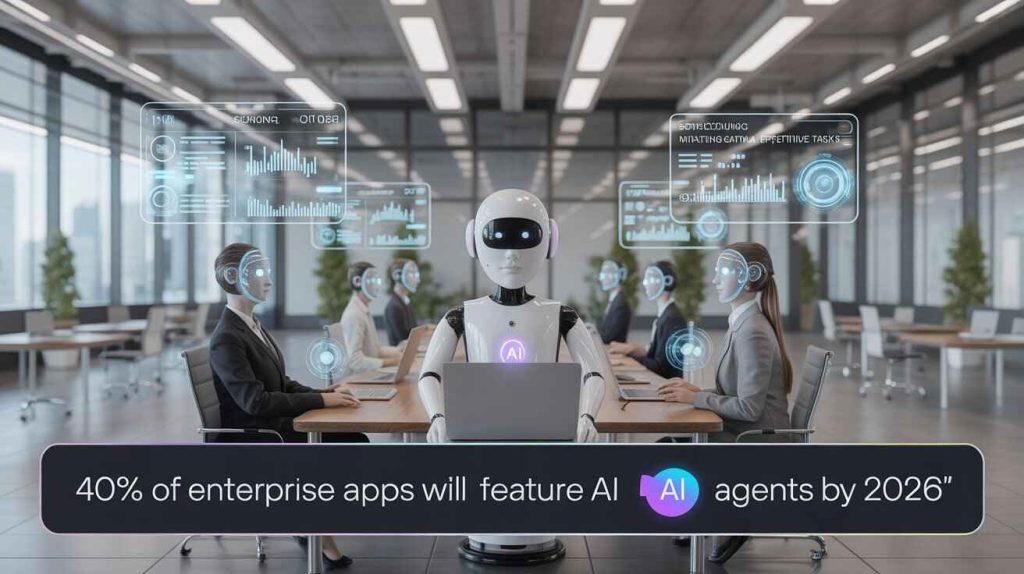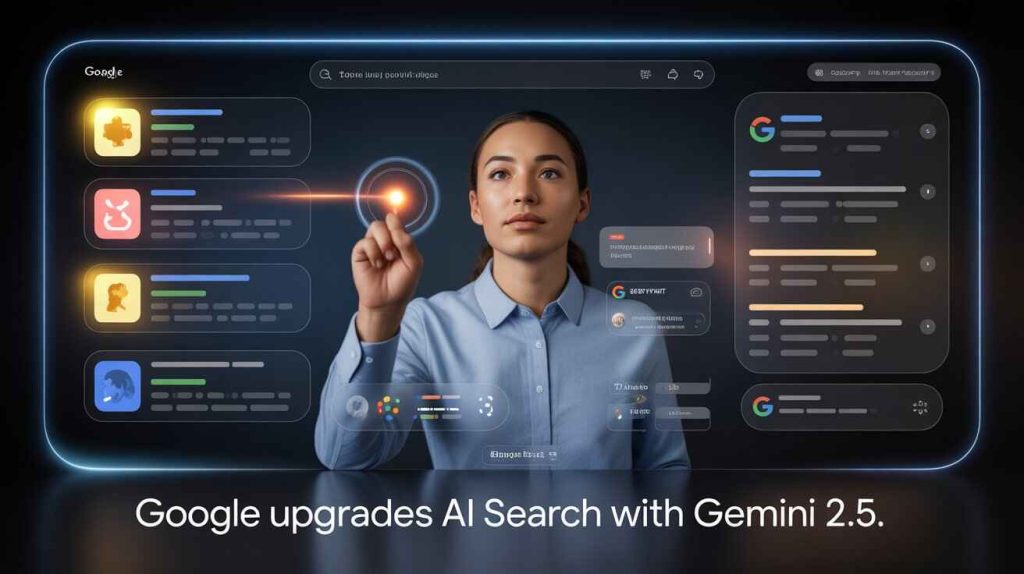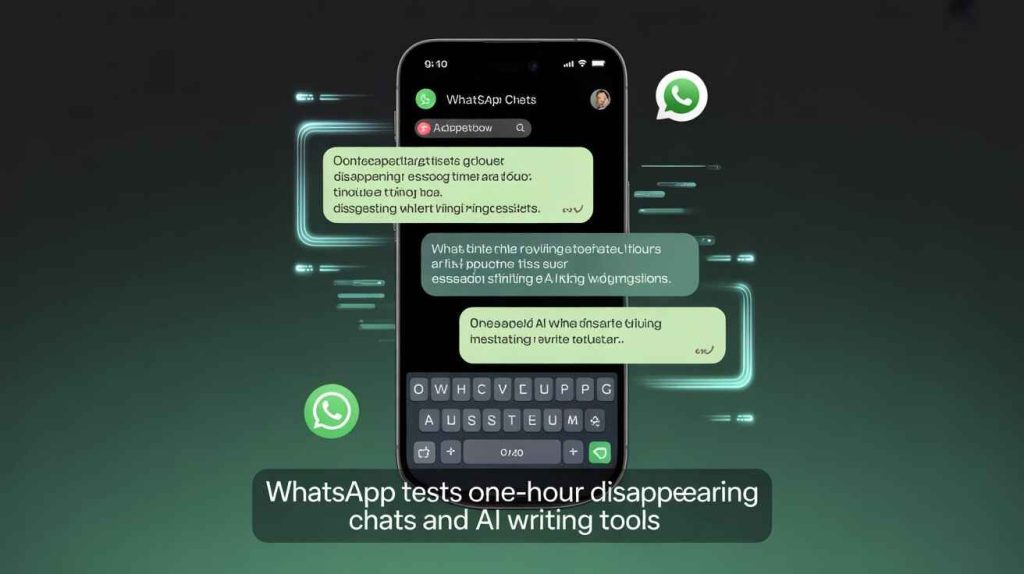Artificial intelligence (AI) continues to transform industries, governments, and daily life at an unprecedented pace. Today, September 2, 2025, several major AI updates highlight how technology leaders are shaping the future. From Microsoft offering free Copilot services to government employees, to Google upgrading its search engine with Gemini 2.5, WhatsApp testing new privacy and AI tools, and China enforcing AI content labeling laws, the landscape is rapidly evolving.
In this article, we explore each update in detail, discuss its implications, and analyze how these changes affect businesses, governments, and everyday users.
1. Microsoft Offers Free Copilot AI Services to U.S. Government Workers
Microsoft has announced a groundbreaking initiative to provide free access to its Copilot AI services for U.S. federal employees. Copilot, a generative AI tool integrated into Microsoft 365, can assist with drafting documents, analyzing data, summarizing information, and automating repetitive tasks.
Why it matters:
-
The U.S. government workforce can leverage AI to improve operational efficiency and decision-making.
-
By integrating Copilot into workflows, employees can save significant time, focus on higher-level tasks, and reduce human error.
-
Microsoft projects that the initiative could save billions in operational costs while increasing productivity.
Use cases for government employees:
-
Automating email responses for routine requests.
-
Analyzing large datasets to inform policy decisions.
-
Drafting reports and presentations quickly with AI-assisted writing.
-
Enhancing citizen services by providing faster, AI-generated insights.
Expert insight:
AI analysts emphasize that this initiative is a glimpse of the future of public sector AI adoption, setting a precedent for other countries to follow.
2. Gartner Predicts 40% of Enterprise Apps Will Feature AI Agents by 2026
Gartner’s latest forecast predicts that 40% of enterprise applications will incorporate AI agents by 2026. AI agents are software programs capable of performing specific tasks autonomously, such as customer support, financial analysis, and HR management.
Implications for businesses:
-
Increased operational efficiency and cost reduction.
-
Enhanced customer experiences with AI-powered support systems.
-
Predictive analytics helping businesses make faster, smarter decisions.
Real-world examples:
-
AI-powered virtual assistants managing employee schedules.
-
AI chatbots providing 24/7 customer service with context-aware responses.
-
AI agents in finance predicting trends and recommending investment strategies.
Future outlook:
Organizations not adopting AI agents risk losing competitiveness. Businesses are expected to integrate AI not just as a tool but as a core part of their operations.
3. Google Upgrades AI Search with Gemini 2.5
Google has launched Gemini 2.5, a major upgrade to its AI search engine, focusing on speed, accuracy, and contextual understanding. This update represents Google’s ongoing commitment to improving the AI-driven search experience.
Key features:
-
Advanced natural language processing for complex queries.
-
Improved multimodal support for image, text, and voice searches.
-
More accurate, context-aware results that reduce irrelevant information.
Implications for users:
-
Faster and more relevant search results.
-
Enhanced productivity for professionals relying on AI search.
-
Improved learning experiences for students and researchers.
Use cases:
-
Researchers finding relevant academic papers quickly.
-
Students generating summaries of large texts efficiently.
-
Professionals conducting competitive market analysis in less time.
4. WhatsApp Tests One-Hour Disappearing Chats and AI Writing Tools
WhatsApp is experimenting with one-hour disappearing chats and AI-powered writing tools to enhance user privacy and communication.
Disappearing chats:
-
Messages vanish after one hour, offering users more control over message retention.
-
Enhances privacy for sensitive conversations.
AI writing tools:
-
Help users craft messages with proper grammar, tone, and clarity.
-
Improve communication efficiency, especially for business or formal messages.
Potential impact:
-
Greater adoption of WhatsApp as a secure platform for personal and professional use.
-
Increased reliance on AI for everyday communication.
5. China Enforces New AI Content Labeling Law
China has implemented a new AI content labeling law requiring all AI-generated content to be clearly identified. This includes text, images, audio, and video.
Purpose of the law:
-
Combat misinformation and fake news.
-
Ensure transparency for consumers regarding AI-generated media.
-
Set a precedent for responsible AI use and governance.
Implications:
-
Companies must adapt AI tools to comply with labeling standards.
-
Promotes trust in AI-generated content among consumers.
-
Could influence global AI regulatory trends, encouraging similar laws in other countries.
Use cases:
-
Media companies labeling AI-generated news or entertainment content.
-
E-learning platforms marking AI-generated study materials.
-
Social media platforms clearly differentiating AI content from human-generated posts.
Also Read
Top 10 AI Tools Launched in August 2025
OpenAI Releases GPT-4.5 Turbo for Developers
Google’s Gemini for Home Is Here – Say Goodbye to Google Assistant
Conclusion
The AI landscape on September 2, 2025, demonstrates the technology’s growing influence across sectors—from government productivity to enterprise automation, search optimization, messaging tools, and regulatory compliance.
-
Microsoft’s free Copilot initiative empowers government employees to leverage AI for productivity.
-
Gartner’s forecast signals widespread AI integration in enterprise applications by 2026.
-
Google Gemini 2.5 improves search accuracy and efficiency for millions of users.
-
WhatsApp introduces privacy-focused and AI-assisted communication features.
-
China’s AI content labeling law underscores the need for transparency and responsible AI deployment.
These developments highlight a global trend: AI is no longer just a tech innovation—it is an integral part of modern society, impacting work, communication, education, and governance. Stakeholders must embrace AI responsibly while remaining vigilant about ethics, privacy, and transparency.






